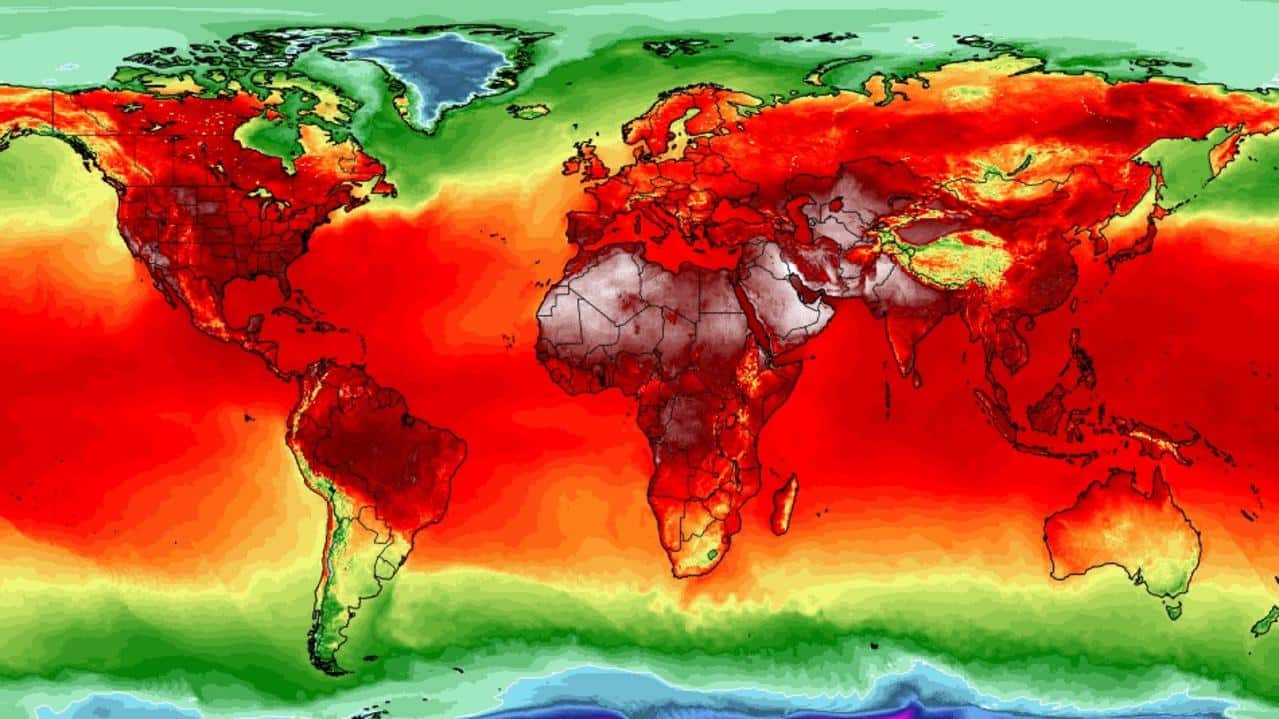An international consortium of researchers has released a stark warning: nearly fivefold more fatalities due to extreme heat are anticipated in the upcoming decades if current climate trends persist. The annual Lancet Countdown report paints a grim picture of the future, where the relentless increase in fossil fuel consumption continues to jeopardize human health on multiple fronts.
This urgent message is underscored by a prediction that the current year may be the hottest on record, as noted by Europe’s climate monitor. The report arrives just as the world prepares for the COP28 climate talks in Dubai, which will feature a “health day” to highlight the health impacts of global warming. In a troubling trend, carbon emissions from energy use reached new peaks last year, fueled by ongoing substantial government and private financial backing for fossil fuels.
The Lancet Countdown study found that, on average, people globally faced 86 days of potentially lethal heat last year, with climate change more than doubling the likelihood of such extreme temperature days. The study notes a worrying 85% increase in heat-related deaths among people over 65 between the decades 1991-2000 and 2013-2022. Looking ahead, if global warming reaches 2 degrees Celsius by century’s end—a conservative estimate compared to the current trajectory of 2.7C—annual deaths from heat could surge by 370% by 2050.
Food security is also at risk, with projections indicating 520 million more people could face moderate to severe food scarcity by 2050. The spread of mosquito-borne diseases like dengue is expected to rise by 36% in a 2-degree warmer world. Cities are expressing concern about their ability to manage the onslaught of climate-related challenges, with over a quarter of those surveyed by the researchers fearing being overwhelmed.
The disproportionate impact on poorer nations, often the least responsible for emissions, is emphasized as a major injustice. These countries are already experiencing the more severe health consequences of climate change, such as dengue outbreaks. World Health Organization Director-General Tedros Adhanom Ghebreyesus echoes the report’s sense of urgency, labeling the effort to limit global warming to 1.5 degrees Celsius as a “public health imperative.” He criticizes the current global trajectory, which is not only failing to curb fossil fuel dependence but also neglecting vulnerable populations in the energy transition.
The UN has highlighted the inadequacy of current pledges to reduce carbon emissions, projecting a mere 2% decrease by 2030 from 2019 levels—far from the 43% reduction needed to achieve the 1.5C goal. The Lancet Countdown report, while foreboding, also offers a glimpse of optimism, noting a 16% decline in deaths linked to air pollution from fossil fuels since 2005, largely due to reduced coal impact. It also reports a 15% increase in global green energy investment last year, surpassing fossil fuel investments. Furthermore, the report suggests that a shift to healthier, low-carbon diets could prevent up to 12 million deaths annually while simultaneously cutting emissions from dairy and red meat production by more than half. This dual benefit illustrates the potential for integrated strategies that address both climate change and public health crises.




 and then
and then